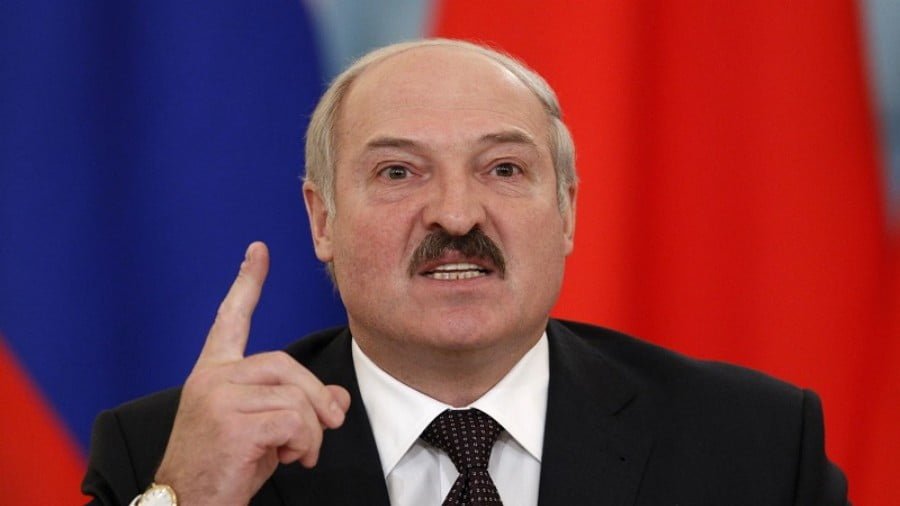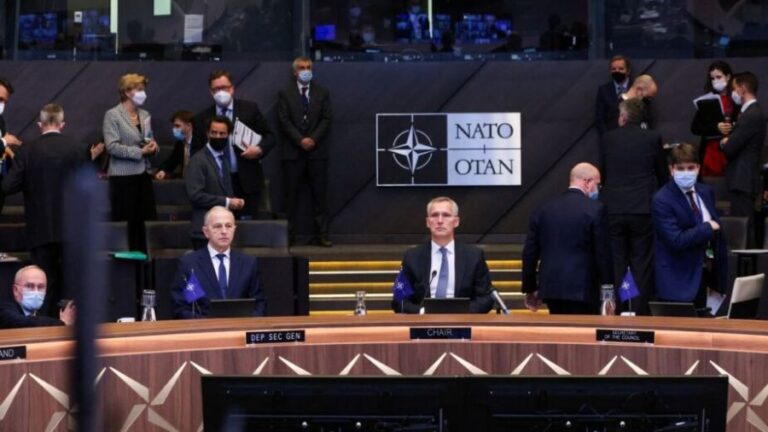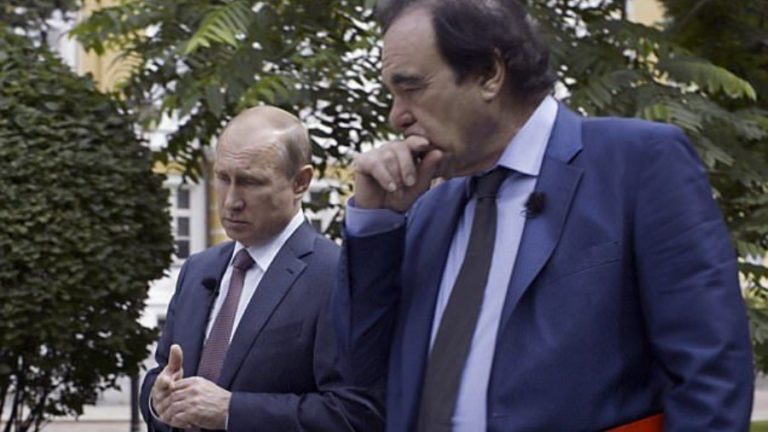Belarus’ ‘Democratic Security’ Operation Shouldn’t be Exploited for Russophobic Purposes
The Belarusian security services have every right to employ whatever means they deem necessary to prevent the illegal seizure of power by a violent political minority, but these “Democratic Security” (counter-Hybrid War) measures shouldn’t be exploited for Russophobic purposes such as attacking Russian journalists in order to send a political message to Moscow, though enough damage has already been done in recent days that it wouldn’t be surprising if Russia begins to tacitly reconsider its position towards President Lukashenko by beginning to contemplate whether it could possibly reach a deal with the West over his future.
When “Balancing” Backfires
Belarus is in the throes of what the author calls the Maidan in Minsk (MiM) movement, which is increasing in intensity with each passing day and worryingly approaching what many fear might be a climax sometime this weekend. His piece earlier this week about how “Lukashenko Has No One To Blame But Himself For Belarus’ Color Revolution Unrest” analyzes this issue but also importantly cites 16 of his previous works over the past half-decade since May 2015 covering the origin of this crisis, which is directly connected with Lukashenko’s failed “balancing” act between Russia and the West. In short, he dangerously encouraged his own Color Revolution by fanning the flames in recent months with Russophobic rhetoric that he wrongly wagered would allow him to co-opt Western-backed regime change elements while simultaneously serving as a pretext for commencing a full-fledged pro-Western pivot after the vote. This risky gamble dramatically backfired after it served to isolate Belarus from its traditional ally during its most strategically vulnerable time as it transitioned from Russia towards the West before actually clinching a partnership with the latter, which therefore created an unprecedented window of opportunity to overthrow its leader in favor of a more easily controllable puppet.
Russophobic Violence Under The Cover Of “Democratic Security”
Regardless of however one feels about the ethics of his failed “balancing” act, Lukashenko is veritably facing an illegal seizure of power by a violent politicalminority after he more than likely really did secure over 50% of the recent vote even if his victory wasn’t as large as it was officially reported to be. The Belarusian security services therefore have every right to employ whatever means they deem necessary to prevent this regime change attempt against him, but these “Democratic Security” (counter-HybridWar) measures shouldn’t be exploited for Russophobic purposes such as attacking Russian journalists in order to send a political message to Moscow. It can’t be known for sure why they’ve already done so several high-profile times thus far, but it appears to be systematic and thus likely ordered from the top by the country’s leader himself. Considering the context in which this crisis is unfolding and remembering last month’s Wager provocation where Lukashenko accused Russia of dispatching up to 200 mercenaries (only 33 of whom were detained) to destabilize the situation in his capital prior to the vote, he probably believes that he’s both “teaching Russia a lesson” and “preventing further meddling” by having his security forces attack his nominal ally’s journalists.
Belarus Burns Another Bridge With Russia
Should that be what he’s thinking and it certainly seems to be since no other explanation makes any sense, then he’s once again terribly mistaken. Not only has he pushed his last remaining possible ally even further away from him than before, which was no small feat in light of the recent Wager provocation that had already taken bilateral ties to an all-time low, but he also sacrificed any soft power support that his security services could have possibly received from Moscow during the course of their current “Democratic Security”. President Putin was nevertheless willing to give his “younger brother” yet another chance after he pragmatically recognized his electoral victory as legitimate in a congratulatory telegram, but Lukashenko blew it once again with his security forces’ subsequent Russophobic actions. Russian media was already critical of him in the run-up to the vote, but they became even more so after what happened. After all, while Moscow supports Lukashenko’s “Democratic Security” operation in principle and would probably do the exact same things (except for attacking journalists of course) if something similar ever happened in the Russian capital, it’s impossible to confidently stand behind him when their own nationals are being attacked throughout the course of it.
Belarusian Opposition Leaders Flee To Russia & Lithuania
Enough damage has already been done to bilateral relations in recent days that it wouldn’t be surprising if Russia begins to tacitly reconsider its position towards Lukashenko by beginning to contemplate whether it could possibly reach a deal with the West over his future. This isn’t mere speculation either since opposition leader Valery Tsepkalo and his politically active wife both fled to Russia for their safety where they then formed the “National Salvation Front Of Belarus“. Belarusians can freely travel to Russia and vice-versa so Moscow had no grounds to deny them access, plus it presumably hoped to repair its reputation in the Western media somewhat by functioning as a place of refuge for two prominent political dissidents, which debunks the information warfare narrative that Russia isn’t a “free” country and the like. Tsepkalo isn’t the only Belarusian opposition leader, though, but the other main one — Svetlana Tikhanovskaya — recently fled to Lithuania so the landlocked country’s MiM movement is now essentially without any symbolic leader still within its territory. It’s this curious dynamic of one opposition leader residing in Russia at the moment while the other one has fled to Lithuania that opens the possibility for some sort of deal to be reached between East and West.
Towards A Polish-Russian Understanding
To explain, Lithuania is part of the recently created “Lublin Triangle” together with Poland and Ukraine, which functions as the core of the Polish-led and US-backed “Three Seas Initiative” (TSI) that aims to challenge Russian influence in Eastern Europe and especially in Belarus. The author wrote about this in his analysis about how “Poland’s Lublin Triangle Will Create Lots Of Trouble For Russian-Belarusian Relations“. It’s therefore no coincidence that Poland and the Baltic States are ready to broker a settlement in Belarus, one which would seek to push Tikhanovskaya into power (whether eventually through a transitional government or immediately in the event of a coup just like the one that was orchestrated in Kiev right after Yanukovich agreed to a similar such deal in February 2014) so that she could turn Belarus into the TSI’s puppet state. Russia, on the other hand, might sense which way the wind is blowing after getting deja vu of the aforementioned Kiev Coup and thus seek to find a way for Tsepkalo to enter into power as well. That by no means implies any form of meddling on Moscow’s part, but simply responsible strategizing in the face of a possible scenario in order to protect its national interests in the context of the current crisis that it played no part in creating. It’s unclear whether Tikhanovskaya or Tsepkalo is the more popular of the two main opposition leaders, but that uncertainty actually works in advance of Russian interests since it creates the pretext for Tsepkalo (who’s friendly enough towards Russia that he trust it with his family’s lives after fleeing there) to get involved in any possible political settlement, one which might be brokered both by the Polish-led TSI/Lublin Triangle states and Russia.
No Political Solution Without Russian Participation
Casual observers might regard it as impossible that the West (and especially Poland) would ever agree to the involvement of the seemingly Russian-friendly (which shouldn’t be conflated with the very different concept of pro-Russian) Tsepkalo in any speculative political transition, but that overlooks the multilaterally beneficial pragmatism of such a scenario since many Belarusians are very pro-Russian and might not peacefully accept their country becoming a Western puppet after a violent political minority seizes power with foreign support. The resultant destabilization could trigger a chain reaction of regionally disruptive consequences, the most negative of which for Western “frontline state” Poland would be a surge of refugees swarming across its border and compounding the many problems that it presently experiences trying to assimilate and integrate the 1-2 million Ukrainians that already moved there since EuroMaidan. It might therefore greatly help to stabilize the situation if a Russian-friendly opposition force was equally involved in a speculative political transition alongside Tikhanovskaya since this could reassure Belarus’ many pro-Russian citizens that no radical geopolitical changes will occur, thus reducing the likelihood of a this scenario spiraling out of control.
Big Business Interests
The US doesn’t want Poland, perhaps its most important ally in Europe nowadays after America’s serious disagreements with Germany over NATO contributions and Nord Stream II caused a seemingly irreconcilable rift to develop between them, being inadvertently destabilized by MiM even if it supports the strategy of “controlled chaos” in other regions of the world despite such an outcome harming its other allies. Russia, meanwhile, is always in favor of stability and especially when it concerns situations along its borders. There are also economic drivers behind this geopolitically pragmatic strategy as well. Both Western and Russian big businesses would arguably benefit from the neoliberalization of Belarus’ largely state-owned economy under the rule of either Tikhanovskaya or Tsepalko (perhaps even both in the event of a de-facto “power tandem” between them a la Putin-Medvedev from 2008-2012) as seems likely if Lukashenko is deposed or agrees to step down. Prolonged destabilization might eventually lead to an uncontrollable situation where valuable state-owned assets are damaged or destroyed, thus depriving foreign big businesses interests of any immediate benefit following the country’s predicted neoliberalization in the post-Lukashenko period.
Concluding Thoughts
Lukashenko poured fuel on the bridges that he was already burning with Russia following the recent Wager provocation after his security services systematically attacked Russian journalists during the course of their ongoing “Democratic Security” operation. Even in the event that he orders them to back off and treat those journalists with the respect that they deserve, the damage is already done and it can’t be ruled out that Russia has finally had enough of him and might consider reaching a pragmatic deal with the West over a “phased leadership transition” in the Color Revolution-beleaguered country. This admittedly speculative scenario could see Russia and Poland jointly brokering a political settlement to the crisis that might result in the Moscow-based opposition leader Tsepkalo and Lithuanian-based one Tikhanovskaya (whose host country is Poland’s TSI “junior partner”) coming together to lead this transition. Such an outcome could allay some of the concerns of Belarus’ majority pro-Russian people as well as the pro-Western minority in order to prevent an uncontrollable escalation of the crisis that could adversely harm Poland and Russia both. It remains to be seen whether anything of the sort plays out, but the possibility is credible enough that it shouldn’t be outright dismissed.







